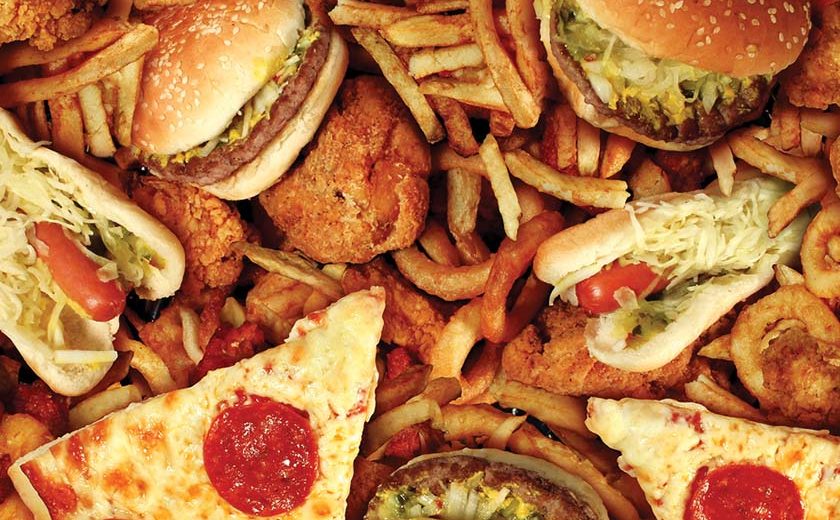Too much unhealthy saturated and trans fat increases your risk of heart disease. Limit saturated fat, and avoid trans fat.
Saturated fat
Eating a lot of saturated fat increases your blood cholesterol, in particular increasing the bad (LDL) cholesterol. Choosing foods with healthier fats instead helps to balance your blood cholesterol, by increasing the good (HDL) cholesterol and lowering the bad (LDL) cholesterol, which reduces your risk of heart disease.
Saturated fat mainly comes from the fat you can see on meat and chicken, from dairy products and from some plant foods like palm and coconut oil. It can be found in processed foods like biscuits, pastries and takeaway foods that have used ingredients like butter, palm oil (often simply called vegetable oil), cheese and meat.
For heart health, it is recommended saturated fat be only 7% of your total energy intake. For example, for an average adult intake of 8700 kilojoules, 7% is about 16 grams of saturated fat.
Trans fat
To reduce the risk of heart disease, limit trans fat as much as possible.
Trans fat increases our risk of heart disease by increasing the bad (LDL) cholesterol and lowering the good (HDL) cholesterol in our blood.
Small amounts of trans fats naturally occur in dairy products, beef, veal, lamb and mutton. The way some fats and oils are processed during manufacturing produces artificial or ‘industrially produced’ trans fats. They’re in foods that use partially hydrogenated vegetable fats, like deep-fried foods and baked foods like biscuits, cakes, pastries and buns.
For heart health, it is recommended that less than 1% of total energy should come from trans fat.
Trans fat on food labels
In many countries manufacturers don’t have to list trans fat on the nutrition information panel. So if you want to reduce trans fat in your food supply, take a closer look at the labelling of trans fat.
Tips for eating less saturated and trans fats
- Choose reduced fat milk, cheese and yoghurt.
- On packaged food products in the supermarket, check the ingredients list for ‘hydrogenated oils’ or ‘partially hydrogenated vegetable oils’ and avoid foods with these.
- Eat less bought cakes, biscuits and pastries. Also limit takeaway food like hamburgers, pizza and hot chips. These foods should only be eaten sometimes and in small amounts.
- Trim all the fat you can see off meat, and remove skin from chicken.
- Avoid processed meat (e.g. sausages and salami).
- Eat fish instead of meat 2–3 times a week, and choose legume or bean-based meals twice a week.


